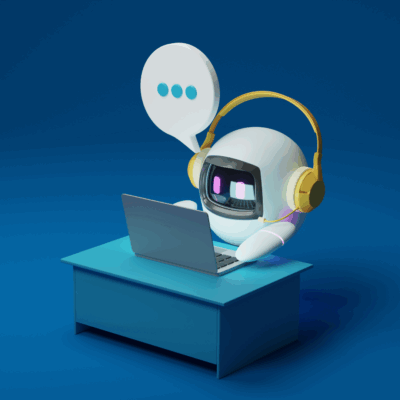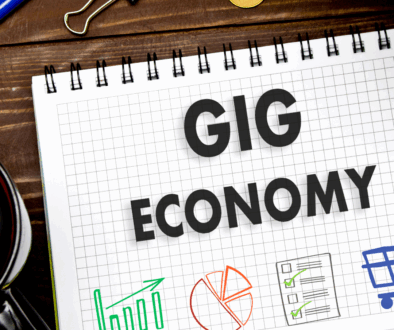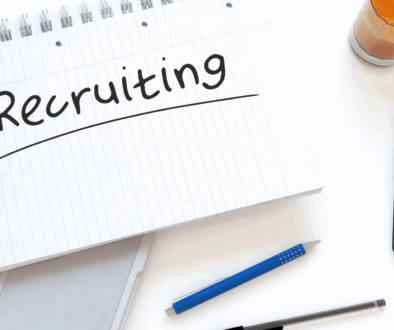How Will AI Affect Recruiting? (Probably Not As Much As We Think)
In January 2023, a framework for AI, called generative AI, was put on the internet by Microsoft and OpenAI under the name ChatGPT. The ChatGPT interface gave people a simulated experience where they felt like they were talking to and interacting with a computer like a person.
ChatGPT humanized AI; it gave computers a meaningful aura of sentience.
By making AI more approachable and accessible to the everyman, Microsoft and OpenAI generated “an entire new hyped narrative around AI as the sort of future-facing technology that’s going to change every industry,” said Meredith Whitaker, president of Signal Messenger, at the Washington Post #PostLive AI Summit.
As a result, throughout 2023, AI was splashed across news headlines, sprinkled into every tech product’s advertising, and headlined at every major business conference. At Google’s annual developer conference, known as I/O, company executives referred to artificial intelligence or “A.I.” more than 100 times during a two-hour keynote.
But, what generative spits out, according to Whitaker’s research, has no relationship to fact—it’s just marketing. Check out this TikTok from the #PostLive Summit to hear more.
Is AI Just Marketing?
Recently, AI experts, business leaders, and tech journalists have echoed Whitaker’s sentiment.
The current hype around Generative AI has been called a smokescreen that tries to hide the ethical, personal, social, and artistic legal questions on data collection methods and algorithms.
“All of these new products and features are impressive, but we’re a long way from computers thinking for themselves,” Inc. recently reported in an essay titled Stop Calling Everything AI, It’s Just Computers Doing Stuff.
Even this week’s guest on America Back to Work, Marcus Body, believes the hype around AI is a bit of a marketing gimmick. “If you’d said to me a year ago, where do you think we’ll be by the end of this year? I thought we’d be using more AI things already than is really proving to be the case,” said Body.
Artificial Intelligence refers to the development of computer systems (algorithms) that can perform tasks typically requiring human intelligence. This includes capabilities such as learning, reasoning, problem-solving, and understanding natural language.
In other words, an algorithm is just a fancy name for the logic inside a computer program. It’s just a reflection of the intent of the person that built it, not automatic human impulses and behaviors.
Despite all the fuss about computers replacing humans—fueled by the fancy, accessible outfit that OpenAI put on artificial intelligence with ChatGPT—computers are still not producing anything that original or useful.
What’s the Value of AI In HR?
That being said, there is some truth behind the marketing; there are still enormous opportunities for people and businesses to command those algorithms—and tailor that logic—to create efficiencies in their work.
And they are, especially in HR and recruiting.
A recent study found that the majority of the 250 HR leaders surveyed said they are already using AI across HR functions like employee records management (78%), payroll processing and benefits administration (77%), recruitment and hiring (73%), performance management (72%), and onboarding new employees (69%).
AI in HR automates repetitive and time-consuming tasks, clearing time for HR leaders to focus on creating and executing high-level strategy, and empowering HR professionals to make better decisions via predictive analytics.
But, while artificial intelligence creates massive opportunities for human resources departments in terms of efficiency and capacity, it also opens employers up to new forms of risk which must be addressed—compliance risks in the form of privacy and discrimination.
Click here to find out how to use AI in HR to unlock all the time- and cost-saving benefits without getting sued.
How AI Will Change Recruiting in 2024
One of the areas in HR where AI is expected to (and already is) making a major impact is in recruiting.
First and foremost, AI can add immediate value to the recruitment process by predicting talent needs within a company or a specific department, helping HR teams prioritize their hiring needs.
AI can also assist HR professionals in sourcing candidates, screening resumes, and identifying the most suitable candidates for a particular role. AI algorithms can analyze job descriptions and match them with the skills and experience of potential candidates, making the hiring process more efficient and reducing bias.
AI empowers segmentation and personalization in the recruiting journey, unlocking major time and cost savings.
“AI could allow your business to communicate very differently with a senior hire to a junior hire—a specialized, skilled candidate versus a generalist—and that’s a huge game changer because it suddenly means you can have this incredibly personalized relationship with a candidate without having them meet thousands of people on your talent acquisition team,” said Body on America Back to Work. (Click here to check out the episode.)
In 2024, as AI products improve and HR departments get more comfortable with the tools, AI is projected to be used more often in conducting video interviews, personality assessments, and online tests to scan for soft skills and cultural fit.
Additionally, more generations are expected to launch generative AI-powered HR chatbots to assist with candidate engagement during the recruiting process and provide real-time support by answering frequently asked questions about the organization or the application process. HR professionals are also expected to hand off more tasks to ChatGPT such as screening resumes, scheduling interviews, writing job descriptions, coming up with search keywords that target qualified candidates, and generating interview questions.
Mostly, for recruiters leaning into the AI trend, 2024 will be about figuring out how to use the tool legally and ethically to improve efficiency—not about replacing HR jobs with a computer.







